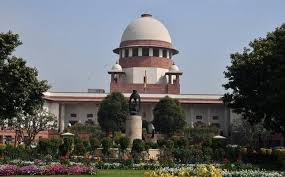CrPC S. 170, 220 – Expression ‘same transaction’, from its very nature, was incapable of an exact definition and it was not possible to enunciate any comprehensive formula of universal application for the purpose of determining whether two or more acts constitute the same transaction – Court indicated a few factors, which would be relevant to decide this question in a given set of facts – In that case, on the complaint of the father of deceased, FIR was lodged for offences under Sections 304-B/34/406 IPC at Police Station Nath Nagar in the District of Bhagalpur, Bihar. Police report was filed on 03.04.1999 after completion of investigation. However, the accused approached the High Court, seeking direction to the Magistrate not to proceed with the matter on the grounds of lack of territorial jurisdiction, as the offence under Section 304-B IPC had taken place at Jahanaganj in the State of Uttar Pradesh and the Court at Bhagalpur was lacking in territorial jurisdiction to try the same. The High Court dismissed the petition of the accused. In further appeal, this Court also observed that the acts formed parts of the same transaction, which came under the ambit of Section 220 CrPC; and directed the Magistrate at Bhagalpur to proceed with the matter expeditiously.
Court, while expounding on Sections 177 and 220 CrPC, observed and laid down as under: –
“4…….Section 177 of the Code of Criminal Procedure on which Mr Mishra relies, uses the expression “ordinarily”. The use of the word “ordinarily” indicates that the provision is a general one and must be read subject to the special provisions contained in the Criminal Procedure Code. That apart, this Court has taken the view that the exceptions implied by the word “ordinarily” need not be limited to those specially provided for by the law and exceptions may be provided by law on considerations of convenience or may be implied from other provisions of law permitting joint trial of offences by the same court……. It may be noticed that under Section 220 of the Code of Criminal Procedure, offences more than one committed by the same persons could be tried at one trial, if they can be held to be in one series of acts, so as to form the same transaction. The expression “same transaction” from its very nature is incapable of an exact definition. It is not intended to be interpreted in any artificial or technical sense. Common sense and the ordinary use of language must decide whether on the facts of a particular case, it can be held to be in one transaction. It is not possible to enunciate any comprehensive formula of universal application for the purpose of determining whether two or more acts constitute the same transaction. But the circumstances of a given case indicating proximity of time, unity or proximity of place, continuity of action and community of purpose or design are the factors for deciding whether certain acts form parts of the same transaction or not. Therefore a series of acts whether are so connected together as to form the same transaction is purely a question of fact to be decided on the aforesaid criteria.”
Mohan Baitha v. State of Bihar (2001) 4 SCC 350






